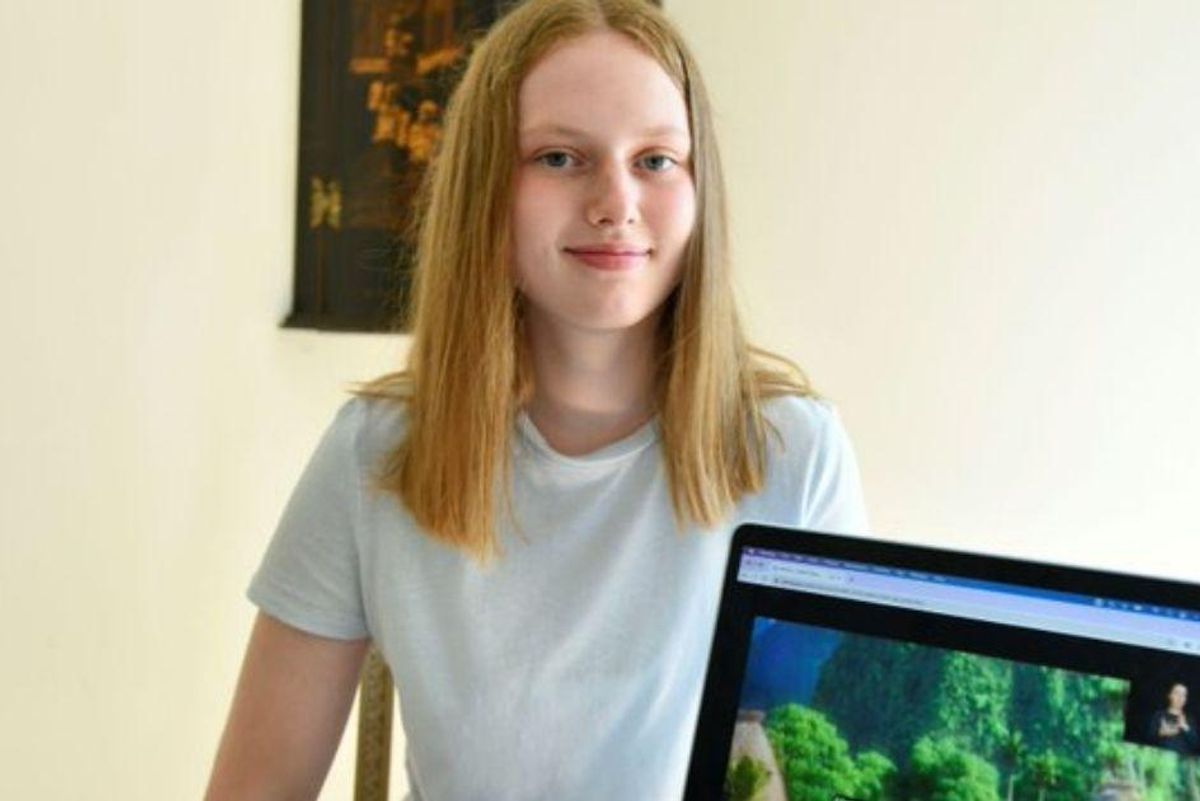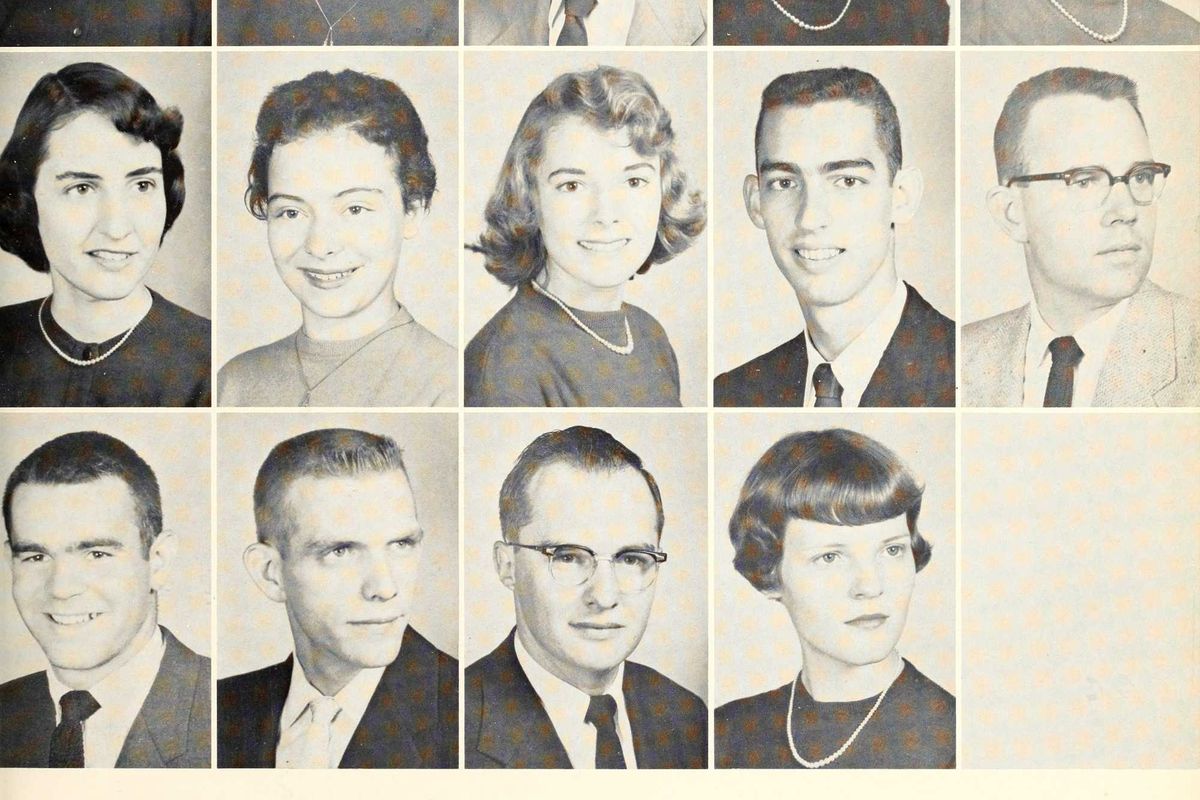A 17-year-old created a free app that makes Disney+ films more accessible for deaf children

Mariella Satow, 17, spent her pandemic down time creating a signing app for children's films.
Subtitles and closed captions make it possible for deaf people to enjoy films and television shows—but what about little kids who can't read yet, or whose reading isn't fast enough to keep up with the captions? How does a deaf child fully appreciate a children's movie if they can't understand what any of the characters are saying and can't read the captions?
Mariella Satow ran into that question when she was teaching herself American Sign Language.
According to the BBC, 17-year-old Satow wanted to watch TV shows with sign language interpretation to help her learn ASL, but found very few that included signing. At first, that was the problem she wanted to solve, but as she learned more about deaf children, she realized an app that included sign language interpretation for kids' movies could also fill a gap in the deaf community.
"Me and my sister were avid movie watchers when we were younger, and I couldn't imagine that not being a part of our childhood," she told BBC's Newsbeat.
Satow has dual citizenship in the U.S. and the U.K. and had been attending high school in England, but when she got stuck in New York during the summer of 2020 due to COVID-19 travel restrictions, she used the pandemic downtime—and her $3000 savings from dog walking—to create an app. It took her a year to develop the technology, and with the help of the deaf community and ASL teachers, the SignUp app was born.
SignUp is a free Google Chrome extension that provides sign language captioning over Disney+ videos. It puts a small box with a sign language interpreter in the corner of the screen while the movie plays—a surprisingly simple solution to the problem of kids not being able to hear or read captions.
"I think accessibility is so important, in general, and this seems like quite a basic need," Satow told Sag Harbor Express. "So many comments have been, 'I can't believe this didn't exist before,' which is surprising, I thought, because it is so needed."
Testimonials on the SignUp website speak to how much this app means to deaf kids and their parents.
"We watched 'Moana' on Thursday night, with the SignUp interpreter on. My six-year-old daughter's face was priceless. She LOVED it. She's not reading yet, so captions don't mean anything. It was the first time she's had full access to a movie. Thank you thank you!!" — Karli H.
"SignUp is simply amazing. My son was born deaf and until recently, captions did nothing for him. He is only 8, so often captions are still way too fast. SignUp provides full access to movies he loves and now he loves them even more! We are so thrilled to finally have full access! This is true equality!" — Jarod Mills
"Thank you so much for developing SignUp! My daughter is Deaf, and can't read, and this provides her with the ability to enjoy movies via her native language of ASL." — Will B.
The brilliant story of Mariella Satow, Rugby School pupil, who has launched a Chrome extension that allows deaf children to enjoy sign language interpretation on Disney films @RugbySchool1567 \nhttps://buff.ly/3hN4hFI\u00a0pic.twitter.com/SXUEg3iyxz— International School Magazine (@International School Magazine) 1632138243
"The most meaningful comments are when it's the first time a child has had full access to a movie," Satow told the BBC. "The numbers don't really matter, it's the messages."
Right now, the app is only available for a handful of Disney+ videos. Satow thought the site was a good place to start to have the most impact for kids, but she now has requests to add hundreds more films to the app and is planning a British Sign Language version of the app.
"There are more than 300 sign languages used worldwide, so it'll take a long time to get all of those versions out," she said.
Here's how to get the extension and use it to launch signing captions:
Satow has been sustaining SignUp as a free app with her dog-walking money, but the site has reached a point where more resources are needed for advertising and expanding to other platforms such as Netflix and Hulu. She launched a GoFundMe, which you can find here. (As of this writing, she had raised $3500 of the $10,000 she hopes to raise. Let's support her and get that up a bit, shall we?)
Satow is surprised but thrilled with the reception SignUp has gotten.
"I'm glad I could fill the gap in the small way I can," Satow told Sag Harbor Express. "I hope it sparks a movement of ASL captioning on everything."
What an awesome example of seeing a need and taking the initiative to meet it. Well done, Ms. Satow.
- People say she's too pretty to be deaf. That's when she hits them ... ›
- Chris Pratt apologized to deaf fans online then had harsh words for ... ›
- A teacher at a school for the deaf had to tell her students people can ... ›
- Man becomes a real life Aladdin—flying carpet and all - Upworthy ›
- CODA–the first movie to feature a deaf cast–wins Best Picture - Upworthy ›
- Someone has created a tool that makes captions for deaf people in real world conversations - Upworthy ›
- Man teaches South African click sounds - Upworthy ›
- Kids surprise deaf cafeteria worker by learning sign language - Upworthy ›
- Deaf cook brings joy to Alabama Waffle House - Upworthy ›
- Deaf cook brings joy to Alabama Waffle House - Upworthy ›
- Deaf dog inspires children - Upworthy ›
- Mom is baffled why her Millennial and Gen Z kids refuse to watch TV without subtitles - Upworthy ›
- Finally, someone explains why everyone needs subtitles when watching TV - Upworthy ›



 In a 4-day model, kids often (but not always) receive less instructional time. Photo by
In a 4-day model, kids often (but not always) receive less instructional time. Photo by 


 Smiling at work, checking messages during a break.
Smiling at work, checking messages during a break. Man focused on his phone screen, deep in thought.
Man focused on his phone screen, deep in thought. Focused multitasking at the office.
Focused multitasking at the office.